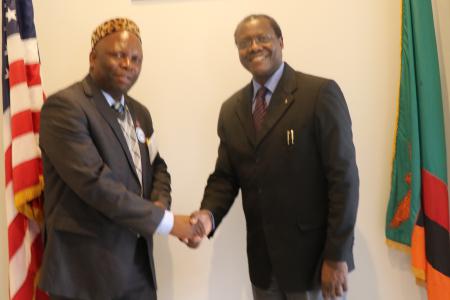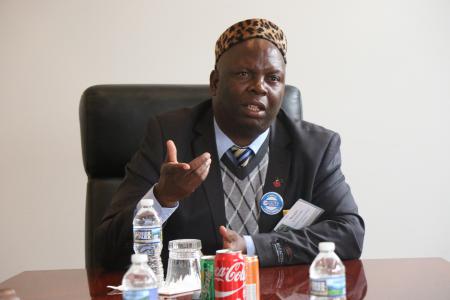The Chamuka Royal Establishment Embarks On Land Empowerment
The Chamuka Royal Establishment of the Lenje-speaking people in Chisamba district of Central Province has embarked on a land empowerment programme for women and youths. His Royal Highness, Chief Chamuka says his chiefdom in collaboration with Government is working on a Social Tenure Domain Model (STDM) system to provide certificate of occupancy by certifying customary land.
Chief Chamuka says the certificate of occupancy will also empower women and youths in accessing loans from financial institutions. He said this is a result of a deliberate policy his chiefdom has come up with to ensure that investors partner with the locals in implementing projects in his area.
“We want to ensure that land is protected and our people are empowered. We want foreign investors to enter into partnership or land lease with our people who we are empowering with land. Right now, there is an investor setting up a solar plant in the chiefdom and we are happy that they will partner with our people in the project,” Chief Chamuka said.
The Traditional leader said this when he paid a courtesy call on Zambia’s Ambassador to the United States of America, His Excellency Dr. Ngosa Simbyakula S.C., at the Embassy in Washington D.C. Chief Chamuka was in Washington to attend the 19th Annual World Bank Conference on Land and Poverty, the premier global forum on land governance. Also attending the conference were Ministry of Lands and Natural Resources Surveyor General Joseph Minango, National Spatial Data Infrastructure, Project Manager Emmanuel Tembo and People’s Process on Housing and Poverty in Zambia Country Coordinator Nelson Ncube.
The 2018 conference whose theme is; “Land Governance in an Interconnected World”, presents the latest research and practice on the diversity of reforms, interventions, and innovations in the land sector around the world. The conference has become one of the largest international events on land governance, attracting over 1,300 participants in 2017 from governments, academics, civil society, and the private sector.




